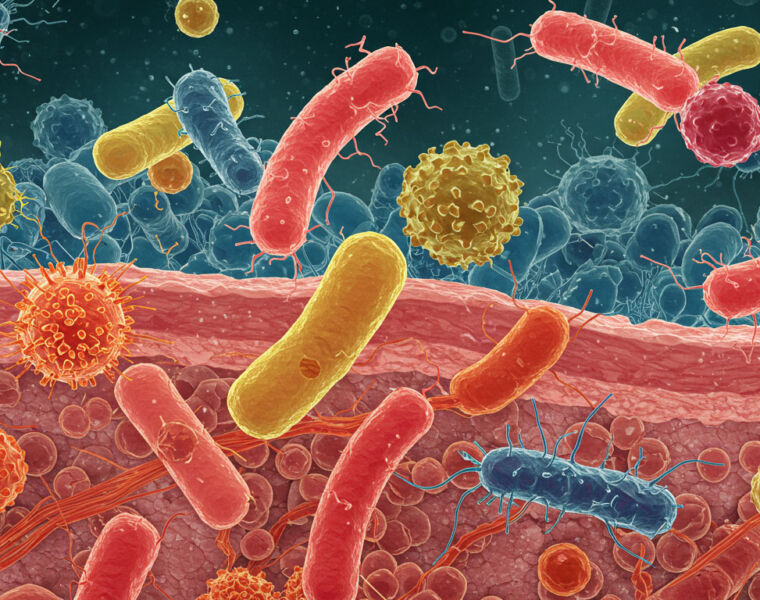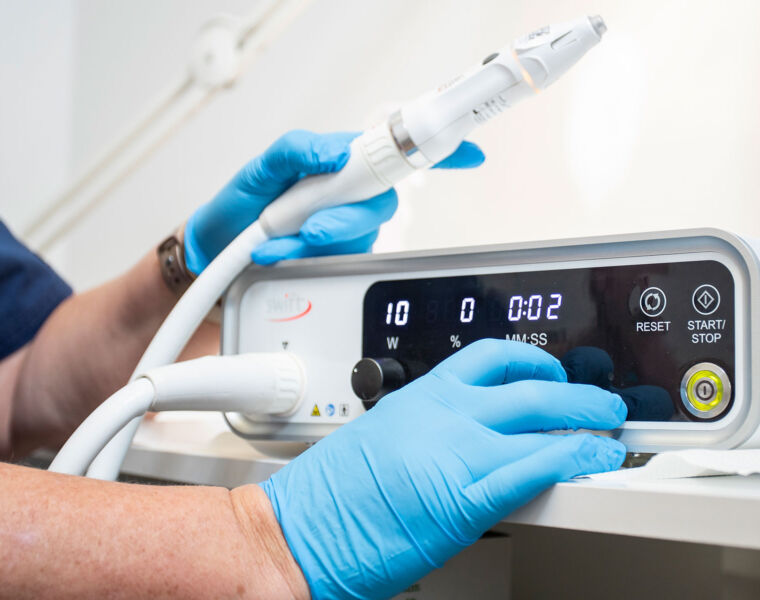
Most of us are guilty of not always consuming five vital fruit and vegetables daily. But shunning fruit and vegetables on a regular basis is bad news for our health and wellness as they are packed with vitamins and minerals that our bodies need 24/7.
There are now critical nutrient gaps in most people’s diets, whatever their age status. The most recent findings from the UK National Diet and Nutrition Survey (NDNS)[1] used to collate a report for HSIS, “Back to basics: the nutrients you need, served on a plate” [2] showed that many people are lacking in as many as eight key nutrients with potentially harmful effects on their health.
Worse still, there have been significant declines in many nutrients over the last 10-20 years.
All micronutrients are needed throughout life, not just for specific periods of life and various population groups such as children and mum’s to be. In this guide by the Health & Food Supplements Information Service (HSIS), we look at the 18 vitamins and minerals we should all be filling up on daily.
Back to Basics: NUTRIENT MUSTS

Vitamin A: Vitamin A is essential for maintaining good eyesight, particularly for adaptation to darkness and for the health of the retina (at the back of the eye). It is also essential for healthy skin and growth in children.
Vitamin A helps cells to specialise in their different functions in the body. It also helps metabolise iron inside the body, maintain healthy mucous membranes (e.g. in the nose and respiratory tract), and is essential for immune function. Vitamin A is currently being researched for its impact on age-related macular degeneration (ARMD).[3]
B vitamins: The B vitamins help enzymes in the body do their jobs, like breaking down carbohydrates to produce energy and transporting other nutrients throughout the body. The B vitamins work together to keep the nervous system and the brain running correctly.

Thiamin – vitamin B1: Thiamin is essential for the health of the nervous system and for transmitting specific nerve signals between the spinal cord and the brain. Thiamin is essential for the functioning of some important enzymes. These enzymes have vital roles in making energy available in the body. Thiamin is also necessary for good brain and heart function.
Riboflavin – vitamin B2: Riboflavin is essential for forming two substances: FAD (flavin adenine dinucleotide) and FMN (flavin mononucleotide). Both of these are vital for enabling the processes that make energy available in the body. Riboflavin works effectively with iron, vitamin B6 and folic acid.
It is important for the nervous system, skin and eye health. It also helps keep red blood cells healthy, protects cells from oxidative stress and helps reduce tiredness and fatigue.
Niacin: Niacin is vital for energy release in tissues and cells. It helps form NAD (nicotinamide adenine dinucleotide) and NADP (nicotinamide adenine dinucleotide phosphate), two coenzymes involved in releasing energy from food. Niacin helps maintain healthy nervous and digestive systems.
Niacin is also essential for general growth and for healthy skin and contributes to a reduction in tiredness and fatigue.

Folic acid: Folic acid is essential during pregnancy for efficient neural tube development which forms the brain and spinal cord. ‘Neural tube defects’, such as spina bifida, in babies appear to be linked to a ‘metabolic defect’ in folate metabolism in the mother. This means that, even though the mother may have an adequate dietary intake of folic acid, her body cannot use it efficiently.
Taking extra folic acid at the time when the neural tube is forming can reduce the chance of the baby having a neural tube defect. However, the neural tube is formed very early during pregnancy – about a month after conception.
Women are advised to take folic acid for 12 weeks prior to conception and to continue taking folic acid supplements until the 12th week of pregnancy. 15% of teenage girls and 6% of adult women do not achieve the LRNI for folic acid. Nine out of ten women of reproductive age have folic acid intakes so low that they risk having a baby with a neural tube defect (NTD).

In addition, folic acid is essential for forming red blood cells and has been shown to reduce the levels of an amino acid (homocysteine). This reduction may have a protective effect against heart disease. Folic acid also contributes to brain health and immune function and helps to reduce tiredness and fatigue.
Vitamin B6: Vitamin B6 plays a vital role in the functioning of more than 60 enzymes, including those responsible for energy production. It is also essential for protein metabolism, RNA and DNA synthesis and the production of red blood cells and antibodies which fight infections. It also supports healthy skin and is necessary for maintaining a healthy nervous system.
Vitamin B12: Vitamin B12 is essential in the functioning of the nervous and immune systems as well as red blood cell formation and RNA and DNA synthesis. It is also involved in energy production and works together with vitamin B6 and folic acid in homocysteine (an amino acid) metabolism. Vitamin B12 also helps to reduce tiredness and fatigue.
People over 50 and those following vegan or vegetarian diets or cutting down on meat are at risk of a vitamin B12 deficiency.
Vitamin C: Vitamin C is an antioxidant, neutralising free radicals to help protect cells. Vitamin C is involved in the synthesis of collagen and other constituents of bone, teeth and capillaries. It aids in wound healing. It is also necessary for the function of several enzymes, and it increases the absorption of iron in the gut. It also helps contribute to normal energy metabolism and nervous system function and reduces tiredness and fatigue.

Vitamin C may have a role in protecting against the common cold and other respiratory tract infections as well as conditions such as cardiovascular disease, cataracts, diabetes and Parkinson’s disease.
Vitamin C is the subject of new research on its potential to enhance the impact of dietary nitrate on the health of the blood vessels and blood pressure. Nitrate is converted to nitric oxide in the body, and research indicates that vitamin C may increase the yield of nitric oxide.[4]
Vitamin D: Vitamin D helps the body to absorb and use calcium and phosphorus, which are essential for maintaining strong and healthy bones and teeth, as well as other body functions such as heart and muscle function. Vitamin D is also important for blood clotting, the immune system and muscle growth, development and function.
Everyone is recommended to take a vitamin D supplement of ten micrograms daily as vitamin D cannot usually be obtained from food in sufficient quantities, and Britons often don’t get the sunlight required to maintain blood levels.
Vitamin D is being researched for a number of extra-skeletal benefits. Low vitamin D status in children, for example, has been associated with poor sleep. [5] Vitamin D is also protective for respiratory health. A daily dose of 400-1000 iu daily of vitamin D has been found in recent research to be protective against acute respiratory tract infection. [6]
Vitamin E: Vitamin E acts as an antioxidant helping to neutralise potentially damaging free radicals in the body. Vitamin E is particularly important for the protection of cell membranes as well as maintaining healthy skin, heart and circulation, nerves, muscles and red blood cells.
Calcium: Calcium is essential for building and maintaining healthy bones and teeth. Calcium also plays a role in muscle contraction, including the heart muscle. It facilitates signals between nerves. Calcium is involved in energy production and cell division and is used in the blood clotting mechanism. More than a fifth of girls aged 11-18 and more than one in ten (11%) of adult women fail to achieve the LRNI for calcium. This is very worrying for bone health and increases the risk of osteoporosis.
Iodine: Iodine is used to form thyroid hormones (thyroxine and tri-iodothyronine), which regulate metabolic rate. Iodine is needed for normal growth and development – especially of the brain and central nervous system. It also contributes to the function of the immune system and helps keep skin healthy.
People who do not eat fish or dairy are likely to be short of iodine. More than one in four (27%) of 11–18-year-old girls and 15% of women aged 19-64 years do not achieve the LRNI for iodine. This is of concern in the context of potential pregnancies, given the growing foetus’s requirement for iodine in the development of brain tissue.
Iron: Iron is essential for the formation of haemoglobin which is present in red blood cells. Haemoglobin is formed in the body all the time and is the substance in red blood cells that transports oxygen around the body. Iron also contributes to normal energy metabolism, cognitive and immune function and the reduction of tiredness and fatigue.
Women in their reproductive years have a relatively high iron requirement (because of menstrual losses). Vitamin C helps the absorption of iron.
Almost one-third (32%) of teenagers are short of iron[7]. More than half (54%) of 11–18-year-old girls are short of iron. And more than one in four (27%) of women aged 19-64 years have iron intakes below the LRNI (a level at which deficiency is very likely). Older people, too, might be short of iron.
The majority of women in their teenage years may benefit from iron supplementation by making sure that iron is included in the multivitamin/mineral supplement. Anyone who has been diagnosed with anaemia will require a prescription iron preparation.

Magnesium: Magnesium is needed for the formation of many enzymes in the body which release energy from food. It is also vital for the nervous system, muscle movement and the creation of healthy bones and teeth. Magnesium also helps contribute to electrolyte balance and is required for protein synthesis.
Shortfalls of magnesium in the UK population are significant. A total of 38% of teenage girls, 13% of 19–64-year-olds and 16% of people over 65 do not achieve the LRNI for magnesium.
Magnesium deficiency is linked with cardiovascular disease. New research[8] indicates that magnesium deficiency is linked with inflammation of the arteries increasing the risk of high blood pressure. Increased magnesium intake may reduce inflammation and suggest a mechanism by which magnesium may reduce the risk of hypertension and cardiovascular disease.
Selenium: Selenium is part of an antioxidant system. It protects the body’s cells from damage and helps maintain the body’s defence system. Selenium also works in conjunction with vitamin E and is a component of many enzymes. Selenium also helps contribute to sperm formation, is important for thyroid function and immunity, as well as helping to keep hair and nails healthy.
Dietary intake is low in the UK because of soil selenium levels. The most recent version of the NDNS shows that 26% of 11–18-year-olds, 25% of 19–64-year-olds and 36% of over 65s have magnesium intakes below the LRNI.
Zinc: Zinc is an important part of many enzymes, some of which have key roles in the formation of new proteins – one of the processes involved in tissue growth. Zinc is required to aid the growth of the immune cells plus maintenance of hair, skin and nails. Superoxide dismutase (a powerful antioxidant enzyme that neutralises potentially damaging free radicals) requires zinc for its action. Zinc is also essential for reproduction and immune function.
The latest NDNS shows that 22% of teenagers, 8% of adults aged 19-64 and 7% of people over 65 have zinc intakes below the LRNI. Red meat provides a significant proportion of zinc in the diet. Intakes of red meat have been falling, increasing the risk of zinc shortfalls.
Omega 3: Omega 3 fatty acids (EPA and DHA) found in fish oils and other marine sources are important for heart health, supporting brain function, and contributing to eye health.
They reduce triglycerides (type of fat) in the blood and can also help to reduce blood pressure. EPA and DHA also inhibit the production of inflammatory chemicals in the body and have anti-inflammatory benefits on joints.
EPA may also help to discourage the formation of blood clots and help assist the blood to flow freely around the arteries, maintaining circulation. EPA may also help maintain a healthy heart. DHA is important in infant development, particularly in prematurely born infants. It is believed to be necessary for early eye and brain development. DHA is also thought to support brain development throughout childhood.
Intakes of omega-3 s remain firmly below the recommended intake of 140g per week for oily fish, which is the main source of omega-3s. It is 56g for 19–64-year-olds and 84g for older people. Children eat a minuscule amount -around a tenth of apportion each week.
Last word: Future proof your health
These nutrient shortfalls across all decades of life happen due to the fact that many of us are guilty of either skipping meals, have turned to fad diets, cut out major food groups such as dairy from the diet or are just too hectic to cook healthy meals.
One in eight people are now vegan or vegetarian, with many more simply cutting their meat intake. As a result, shortfalls in vital nutrients – iron, zinc, B12, vitamin D, selenium and iodine are inevitable. These dietary gaps can be sorted by taking a multivitamin and multimineral supplement as well as an omega-3 supplement. Bridging the dietary gaps across all population groups can future-proof health across the board.
References:
- [1] https://www.gov.uk/government/statistics/ndns-results-from-years-9-to-11-2016-to-2017-and-2018-to-2019
- [2] Back To Basics: The Nutrients You Need, Served On A Plate; Edition 1; HSIS – Autumn 2021
- [3] Pfau et al (2023) https://pubmed.ncbi.nlm.nih.gov/37315571/
- [4] Lbban et al (2023) https://pubmed.ncbi.nlm.nih.gov/36917872/
- [5] Pouurostami et al 2023. https://pubmed.ncbi.nlm.nih.gov/37255800/
- [6] Jolliffe et al. (2021). https://pubmed.ncbi.nlm.nih.gov/33798465/
- [7] Failure to achieve the LRNI, a level at which deficiency is extremely likely
- [8] Mutchler et al (2023). https://pubmed.ncbi.nlm.nih.gov/37293263/
Read more health news, guides and features here.
![]()




You must be logged in to post a comment.